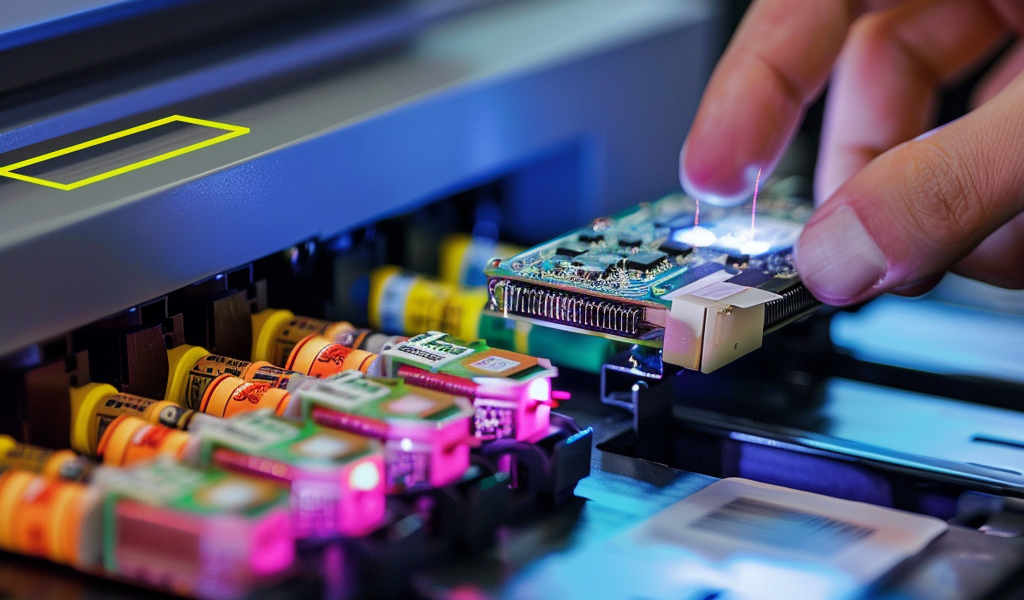Innovative Hack Bypasses HP Ink Cartridge DRM Amid Rising Demand for Affordable Alternatives
In the world of printing, inkjet cartridges have long been notorious for their steep prices, leading many users to seek alternatives. The trend of using third-party ink cartridges, particularly re-manufactured options, has surged due to the high costs associated with original equipment manufacturer (OEM) cartridges. This shift has been driven in part by digital rights management (DRM) practices that restrict users from easily refilling or reusing their cartridges.
At the heart of this issue is the incorporation of tracking chips within OEM cartridges, which are designed to prevent users from refilling them manually. These chips can pose significant challenges for those looking to save money on ink costs. However, innovative solutions are emerging, as demonstrated by a recent development that showcases a bypass for HP ink cartridge DRM.
Utilizing a man-in-the-middle attack, a clever hack has been devised that allows users to circumvent the restrictions imposed by HP’s DRM system. This hack involves a flexible printed circuit board (PCB) that connects between the cartridge and the printer, effectively intercepting communication between the two. The PCB is designed with contacts on both sides to align perfectly with the cartridge and printer connections.
Within this setup, a single integrated circuit (IC) is cleverly housed in a milled indentation on the cartridge. By fitting flush against the cartridge and printer, this device can manipulate the signals being sent and received, allowing users to continue printing without the need for overpriced OEM cartridges.
Despite the ingenuity of this solution, HP has not taken the development lightly. The company has issued warnings, threatening to disable printers that detect the use of third-party cartridges. Their Dynamic Security DRM system has been a point of contention, as HP claims it is necessary to protect users from potential security threats posed by hackers and viruses.
The ongoing legal battles surrounding HP’s DRM practices have raised questions about the fairness and legality of such restrictions. Users are increasingly frustrated with being locked into using expensive OEM cartridges, leading to a growing demand for alternative printing solutions.
As users explore their options, many are turning to monochrome laser printers as a more cost-effective solution. These printers tend to have lower operating costs over time, especially for those who do not frequently print color documents. The longevity of laser printer components, such as drums, further enhances their appeal, as users can often go extended periods without needing to replace parts.
For those who require color printing occasionally, utilizing services at local print shops or retail locations has become a viable alternative. This approach allows users to avoid the burden of purchasing expensive ink cartridges while still having access to high-quality color prints when needed.
The conversation around printing technology continues to evolve, with users advocating for their rights to choose how they manage their printing supplies. As innovations like the man-in-the-middle PCB hack gain traction, the landscape of inkjet printing may see significant changes in the future.
In light of these developments, it’s clear that the battle between consumers seeking affordable printing solutions and manufacturers enforcing restrictive DRM policies is far from over. As more individuals become aware of their options and the potential for hacks to bypass these restrictions, the demand for transparency and fairness in the printing industry is likely to grow.
As the legal ramifications of these DRM practices unfold, users are advised to stay informed about their rights and the potential risks associated with third-party cartridges. The printing landscape is changing, and with it, the ways in which consumers interact with their devices and supplies.
In summary, the high costs of inkjet cartridges have led to a surge in the use of third-party alternatives, with innovative hacks like the man-in-the-middle PCB bypassing DRM restrictions. As the industry grapples with these changes, consumers are becoming more empowered to make choices that suit their needs and budgets.





